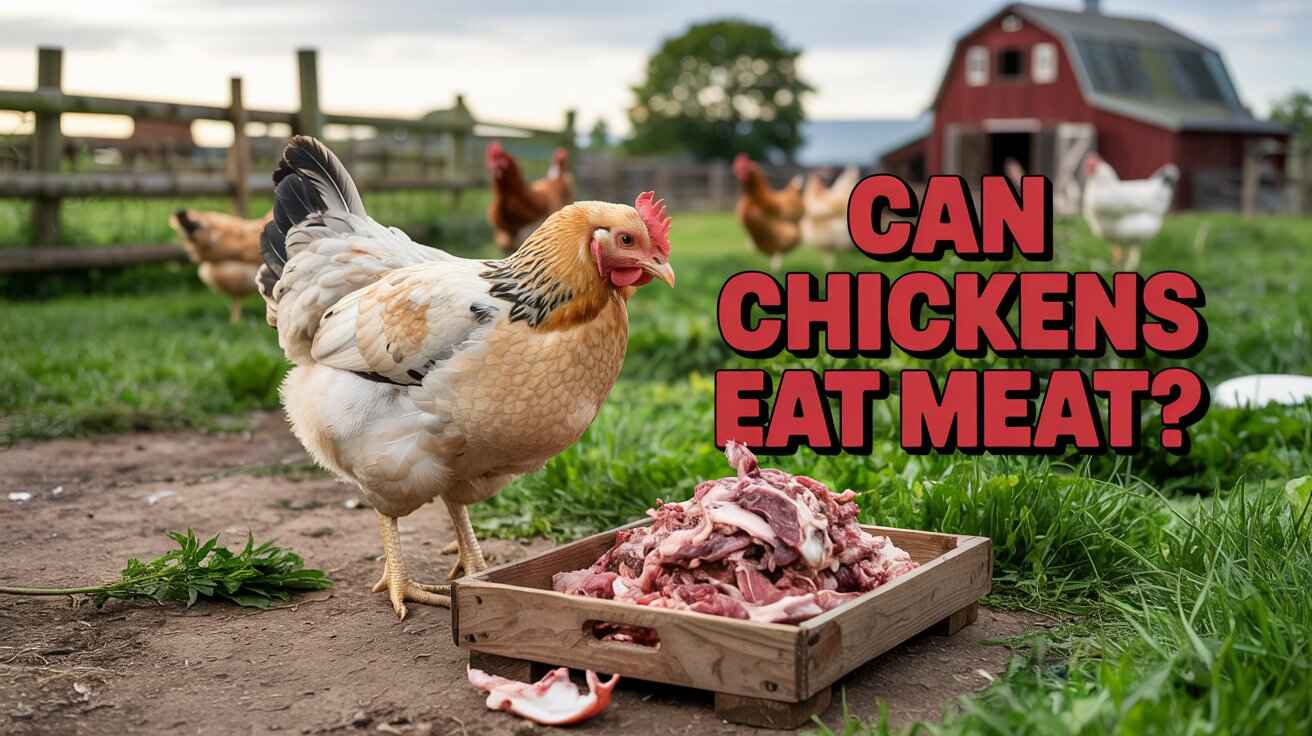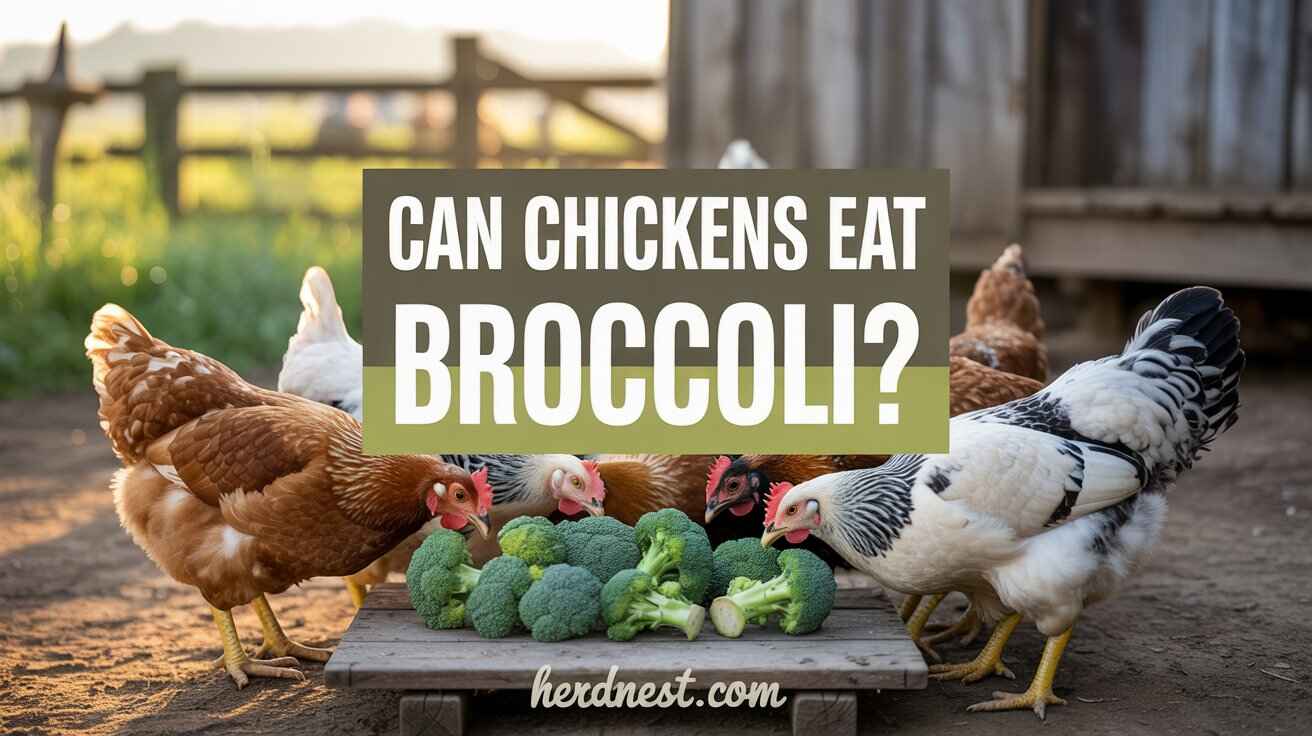When I first started chicken keeping, I was fascinated by their natural diet. Chickens are natural omnivores with an instinct to peck at almost anything—worms, insects, and even small creatures like frogs or mice.
It may feel controversial to offer them meat, especially for those following the “vegetarian-fed” trend proudly displayed on egg cartons in the grocery store. However, understanding the nuances of their diet makes the concept much more straightforward.
Chickens can eat both raw and cooked meat, but it’s essential to manage amounts and choose the types wisely. Offering them ground beef, leftover hamburgers, or even bits of pork or steak isn’t unusual—just ensure proper preparation to avoid making them sick.
Their natural setting often involves chasing down anything edible, from ticks and bugs to even small snakes. Whether you’re a novice or an experienced chicken farmer, you’ll find they’re surprisingly enthusiastic about it.
Providing meat can boost their protein intake and align with their natural diet, but it’s critical to ensure it’s done intentionally and within safe limits.
Observing their reactions and adjusting their menu accordingly will leave you feeling more confident as you “dive” deeper into their feeding habits.
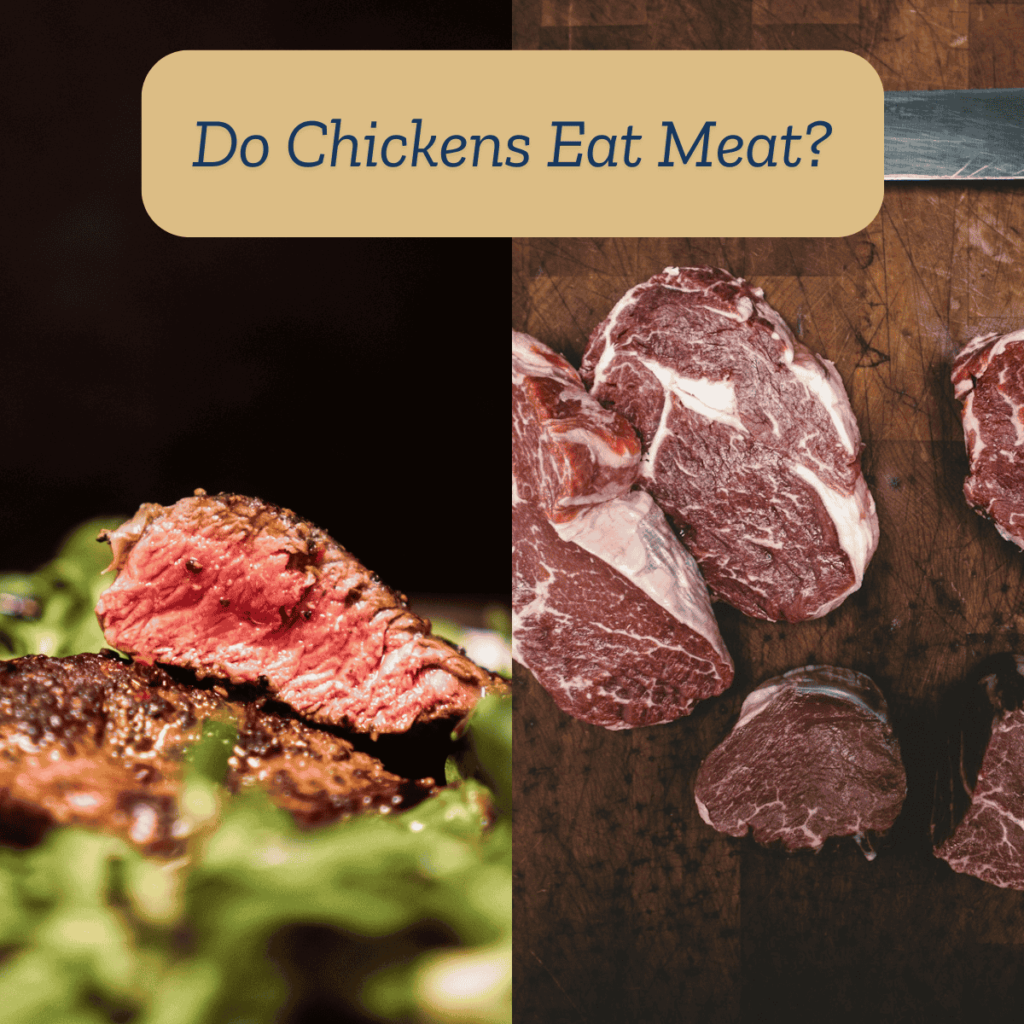
Table of Contents
ToggleDo Chickens Eat Meat?
Chickens are omnivorous creatures, thriving on a diverse diet that includes grains, vegetables, fruits, insects, and yes, even meat. In the winter, when bugs are scarce, adding meat to their diet is an excellent way to ensure they get the protein they need.
My flock, acting as the ultimate clean up crew, happily devours leftovers, from chopped organ meats and offal to scraps from cleaning a deer.
It’s not uncommon for a curious hen to swallow a field mouse whole! During the spring, they’ll enjoy all the insects they can handle, and like wild birds, they’ll eagerly take suet in colder months. This practical approach supports a no-waste homestead and keeps them producing those amazing eggs.
A Chicken’s Natural Diet
Chickens are natural scavengers and thrive when they have the chance to forage in a diverse environment. Unlike in the modern world where they rely heavily on formulated chicken feed, these birds are designed to seek out their own food sources.
They’ll happily explore the woods, scratching through leaves and digging into the soft earth for hidden treats like worms, slugs, and even small rodents.
It’s fascinating to see them chase after frogs, catch lizards, or nibble on tender greens. My own flock prefers protein-packed snacks over greens, often surprising me with how they find hidden carcasses or remnants left behind by predators.
Before commercial poultry feed was readily available, people often fed their chickens meat scraps or allowed them free choice to roam and hunt naturally.
They’d consume a wide variety of foods, from seeds and insects to small birds and even undigested grains found in manure. Watching them thrive off this natural diet shows just how well-adapted they are to this way of life.
Whether it’s scratching through logs or finding snacks in unexpected places, these birds know how to keep themselves nourished with plenty of protein.
Chickens Aren’t Vegetarians!
It’s surprising how many people think chickens should only eat grains. When I see labels like “vegetarian-fed hens” on egg cartons, I can’t help but feel disconnected from the reality of these amazing birds.
Chickens truly love their meat! My flock has a blast with their “treats,” whether it’s frogs, mice, or even rabbit carcasses. They’ve even picked at deer ribs leftover from hunting season—a sight to behold!
Not only do these natural snacks give them vital protein, but they also help with our no waste lifestyle by reducing leftover food. Plus, they’re great for keeping pests under control around our homestead. Watching them devour their meals and play “keep away” is proof that they’re happiest when allowed to be their true selves. Chickens really are awesome when they can do what they do best.
Understanding the Nutritional Needs of Chickens
Chickens thrive on a diverse diet rich in essential nutrients like protein, fat, vitamins, and minerals. While chicken feed provides a solid foundation for their diet, allowing them to forage for natural protein like frogs, bugs, and even mice gives them a crucial nutrient boost.
This is especially important during periods like the fall molt, winter, or the spring rush of egg production, when their bodies need extra support for optimum growth and maintaining high-quality eggs.
A diet balanced with energy-dense foods, including meat and cereal grains, helps prevent issues like stunted growth, feather abnormalities, or even a decline in egg-laying performance.
Studies, including the 1994 Ninth Revised Edition of the Nutrient Requirements of Poultry, highlight the importance of dietary sources rich in carbohydrates, macronutrients, and calories for sustaining a healthy metabolism.
Protein from meat aids in feather regrowth after molting and supports reproduction during colder seasons when low temperatures can stress the flock. I’ve observed that giving my laying flock this balanced approach not only enhances their performance but also keeps them active and engaged, making their care truly rewarding.
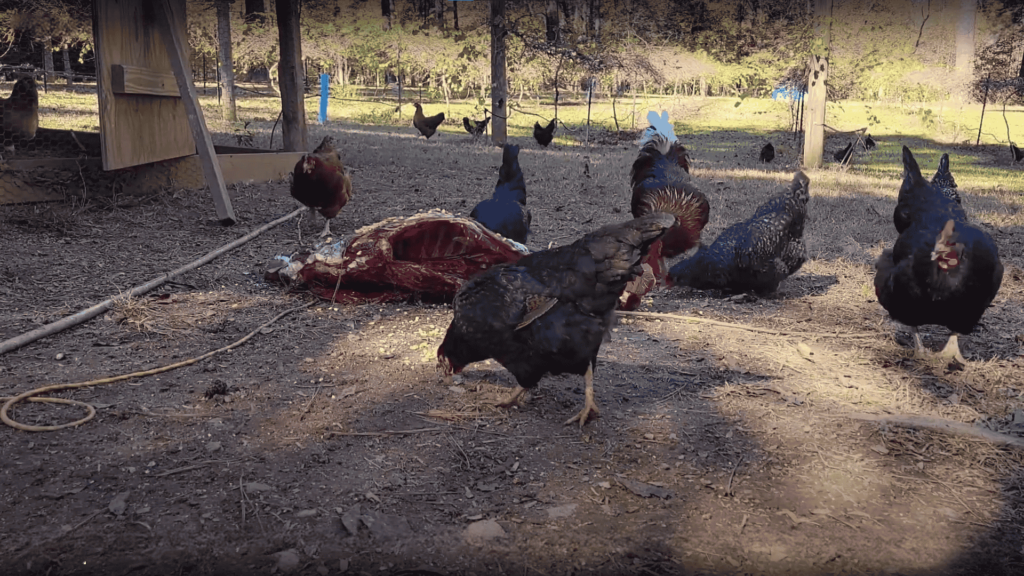
How to Feed Chickens Meat Safely
When feeding meat to your flock, it’s important to consider safety. Chickens are natural foragers and scavengers, and in the wild, they would eagerly peck at raw meat or even carrion.
While they’ll eat meat enthusiastically, you need to be cautious about harmful bacteria like Salmonella, Campylobacter, or Clostridium perfringens. Always ensure the meat is fresh and free of toxins.
Types like beef, pork, fish, and venison are great options. I’ve even seen my chickens clean rib bones after a deer hunt! However, avoid giving them processed meats like bacon, hot dogs, or anything that’s heavily salted, fried, or breaded, as these are not safe for their diet.
If you prefer feeding them raw meat, that’s fine as long as it’s completely safe and fresh—after all, they wouldn’t cook a rodent in the wild! Occasionally offering meat is a great way to add extra protein to their diet, especially for roosters or during colder months when food options are limited.
Whether your birds are in a free-range setup or a regular backyard coop, giving them morsels of meat can enhance their overall nutrition. Just make sure to monitor them and avoid anything spoiled to keep your flock healthy and happy.
How Much Can They Eat?
When feeding meat scraps to your flock, it’s crucial to provide only what they can consume in one sitting. Leaving meat out for an extended period can cause it to rot and attract unwanted predators.
To keep things safe, I recommend placing the scraps near the perimeter of your chicken’s area, rather than inside the run or too close to the coop. This helps minimize risks and keeps your chickens healthy while ensuring their environment stays clean.
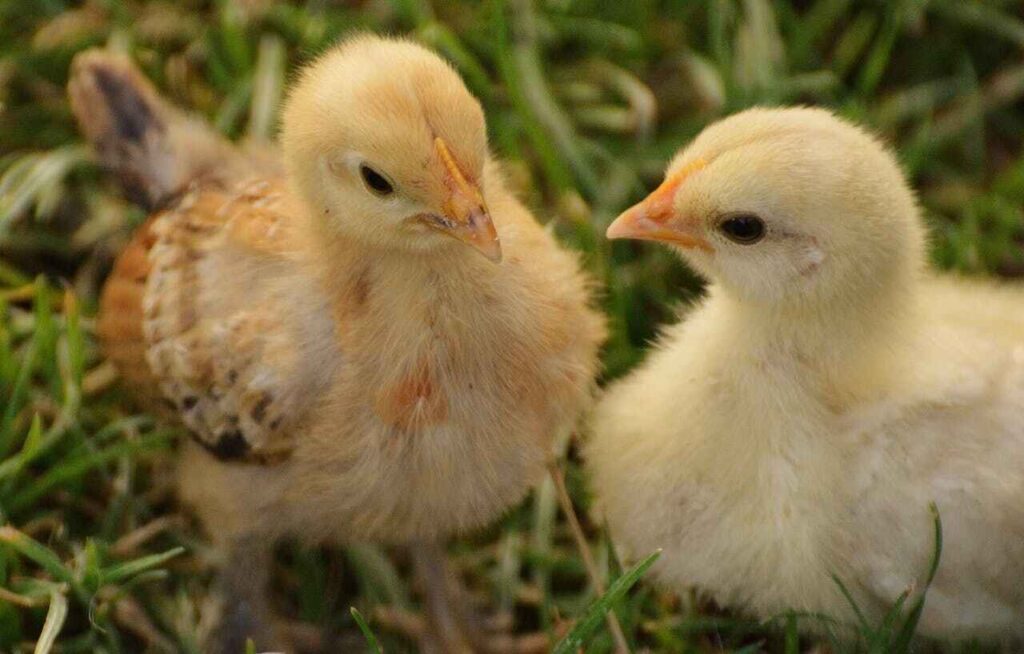
Can Baby Chicks Eat Meat?
I wouldn’t recommend feeding meat to baby chicks. Their tiny size makes it difficult for them to handle anything but very small pieces, and their nutritional needs are best met with a high-quality chick starter.
As they grow and begin foraging naturally, they’ll nibble on tiny morsels like mosquitos, greens, and seeds, which provide them with enough variety and nutrition to thrive without the need for added meat.
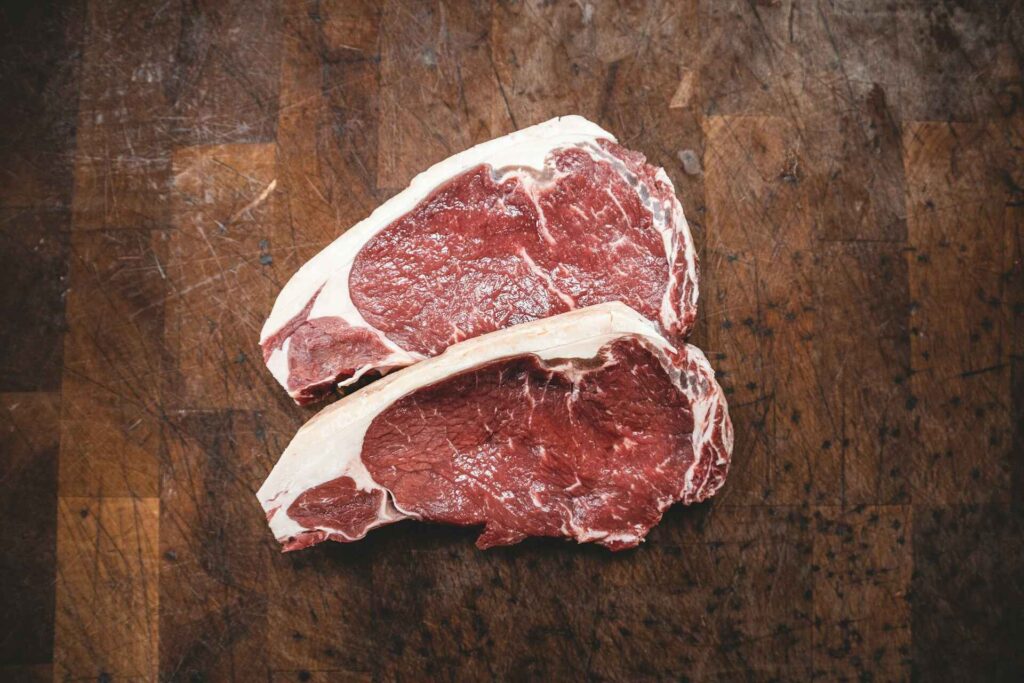
The Risks of Feeding Raw Meat to Your Chickens
Feeding raw meat to your flock can expose them to serious risks like Salmonella, E.Coli, Norovirus, and Listeria, which are common foodborne illnesses. Carcasses, bones, and even leftovers like hamburgers, pork, or steak can carry harmful bacteria that spread to your poultry population.
Mice, rats, and manure piles are also potential sources of contamination, especially when droppings are involved. Young chicks under 3 weeks are most vulnerable, with mortality rates reaching up to 100%.
Additionally, humans can be infected through contact with feces, eating contaminated eggs, or tasting undercooked chicken.
The USDA reports Salmonella in 8% of chicken parts and 25% of ground chicken, showing how common this issue is. To protect your flock, exercise caution and avoid leaving unsafe meat on the menu for your birds to scratch or forage.
